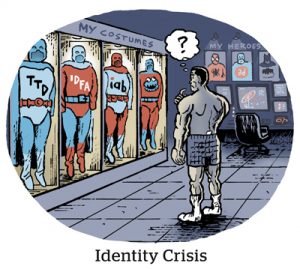 Despite a surge in programmatic buying for mobile ads, a recent Forrester report cautions that challenges unique to mobile advertising make direct sales away from open marketplaces the preferred buying method for the foreseeable future.
Despite a surge in programmatic buying for mobile ads, a recent Forrester report cautions that challenges unique to mobile advertising make direct sales away from open marketplaces the preferred buying method for the foreseeable future.
Based on interviews with 21 industry executives, mobile marketing analyst Jennifer Wise wrote in her report – “Mobile Advertising: It’s Time to Get Personal” – that mobile campaigns require much more customization than desktop ads, and therefore direct sales are optimal.
Can one look at the evolution of programmatic buying for fixed Internet as a model for mobile? Wise said no. “(Programmatic for mobile) is not going to follow the same trajectory as desktop,” Wise told AdExchanger. “Mobile has many different environments. … It’s much harder to identify the user than what we had with desktop.”
Consequently, publishers face issues in collecting actionable user data for marketers, the report said, citing user privacy concerns, a lack of cookies and tracking methods that are not standardized.
Kalyan Lanka, VP of product management at data-management platform Lotame, described in a previous interview with AdExchanger why this fragmentation complicates the ability to gather user data and serve targeted ads: “It’s tough to come up with an automated way (of collecting information). Now, we’re working on it, but we’re not there yet. So technology limitations are a big issue.”
Wise also discussed mobile user interfaces in her report, writing that while consumers interact with “formerly PC channels” on their mobile devices, the experience is vastly different. For marketers, disparate standards make user-friendly advertising difficult: Different screen sizes, devices and operating systems mean there is no one-size-fits-all solution for display ads.
As Lanka noted in his AdExchanger interview: “Today, most of the consumption that happens on mobile devices is driven by a very specific goal.” Task-driven users on mobile respond better to ads that fit contextually with content as to not interrupt that task.
In such a fractured marketplace, Wise concluded that “direct-to-publisher provides the optimal mobile ad experience.” Brands and publishers will work best in customizing ads to a specific format, and sharing proprietary data to enhance user experience, she wrote. For example, The Weather Channel’s real-time marketing platform is tying weather data to buying patterns unique to each brand.
But this sort of activity is best performed in a direct sales environment. Wise’s report predicts programmatic buying of mobile inventory through DSPs and ad networks will continue to grow, but will not be as customizable as with direct sales. Ad inventory on these open marketplaces will come with less valuable user data from a larger pool of publishers.
Wise said automation will remain a component of direct ad sales, but the most effective campaigns will require a hands-on approach. “Because of the sheer size and all of the data that has to be wrangled we’ll still see some automation in the process,” Wise said. “It will just be a different type of buy with an added level of human input.”












